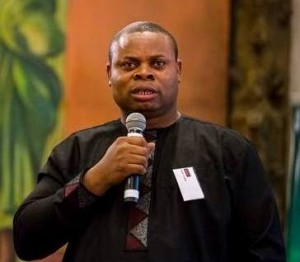NCA publishes ‘authentic’ evaluation report, IMANI claims it’s doctored
 The National Communications Authority (NCA) has published what it says is the authentic report of the evaluation panel in the granting of the interconnect clearing house license to Afriwave, and has reiterated that IMANI’s accusations are false and malicious.
The National Communications Authority (NCA) has published what it says is the authentic report of the evaluation panel in the granting of the interconnect clearing house license to Afriwave, and has reiterated that IMANI’s accusations are false and malicious.
IMANI has on the other hand questioned the authenticity of the report and accused the NCA of doctoring the document, after what the group calls a forensic analysis.
The report published by the NCA on its website on February 14, 2016, is a scanned hardcopy and appears to be a bit different from what policy think tank IMANI used in making its accusations that the tender process for the interconnect clearing house license was fraudulent.
The NCA’s online publication of the report comes after the applicants for the interconnect clearing house license were examined a little over a year ago, but the NCA says it is not required to publish evaluation reports of private companies.
It has also challenged Franklin Cudjoe, the President of IMANI to publish the so called leaked report of the evaluation panel which IMANI has in its possession and to name the whistle blower that leaked the document, for confirmation.
The think tank raised a red flag expressing worry with mathematical impossibility in the assessment and why applications for the monopoly interconnect clearinghouse license were assessed in just 21 days without any visits to the premises of the companies to examine their technical capability.
But the Deputy Minister of Communications, Felix Ofosu Kwakye has questioned IMANI’s basis for suggesting an appropriate timeframe, and IMANI’s experience and competence in telecommunications as against that of the NCA, which has been the industry regulator for years.
The NCA has also said that applicants are not always required to be operating at the time of being granted a license and new entrants have been licensed in times past, who have gone on to operate and deliver the required services.
The Deputy Minister of Communications also said that “no Ghanaian company has ever rendered ICH services in Ghana so previous experience in Ghana with regards to the rendering of interconnect clearing house services, is not required.”
Imani has yet again questioned this explanation saying it seems to suggest that Ghana cannot find an experienced ICH provider anywhere and has to make do with companies that are not necessarily experienced in that regard.
Moreover, despite the NCA and the Deputy Minister’s explanation, the evaluation panel’s report published on the NCA’s website, shows there was an assessment of what is designated “Experience in implementing similar projects”, for which marks were awarded.
Following the impasse that has been created from the difference of the two reports, Patrick Stephenson, head of IMANI’s centre for politics and economics, says the authenticity of the documents is not the crux of the matter but the integrity of the entire process: given that the NCA admits that some error of some kind occurred, the tender process should be reopened and best practice should be followed.
IMANI specifically wants the elements of monopoly and compulsion to be removed since it imposes a specific business partner on Ghanaian telecoms companies, which will have no fear of sanctions if it underperforms as a monopoly.
“At no point in our history and the history of so many nations has a monopoly service provider in any part of any value chain ever delivered excellent service”, IMANI said in a new alert.
The think tank also wants telecoms companies to be allowed to connect to more than one clearing house so that the industry will determine by itself which clearing house it prefers.
“Unlike anywhere in the world, this interconnect clearing house is not just an exchange point for traffic from one telco to the other. It is also going to sit on every telecom network and MONITOR every call. It will serve as a billing conciliation service and also manage data and VAS intermediation. In short, it is going to be a mini-God imposed on the telecom industry, run by a monopolist selected through dubious means by a dogged few.”
“Firstly, this flies in the face of all common sense. If the ICH is going to be carrying traffic, then it is also a telecom carrier, with an incentive to under-declare revenue. Best Practice suggests in such a context that it cannot play both roles.”
By Emmanuel Odonkor
